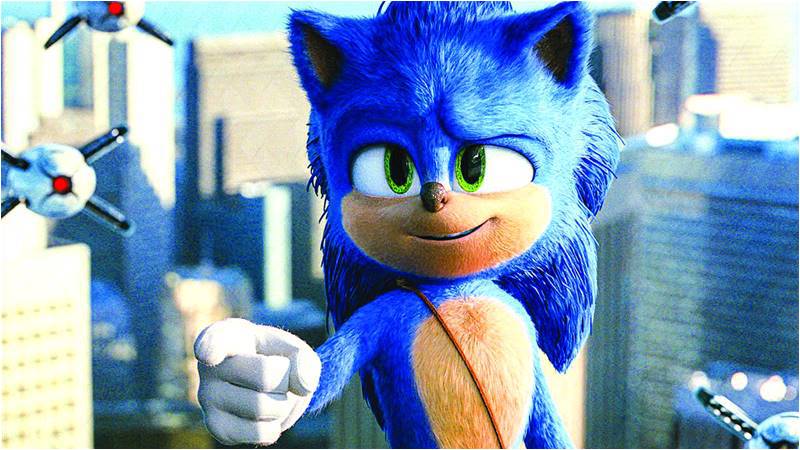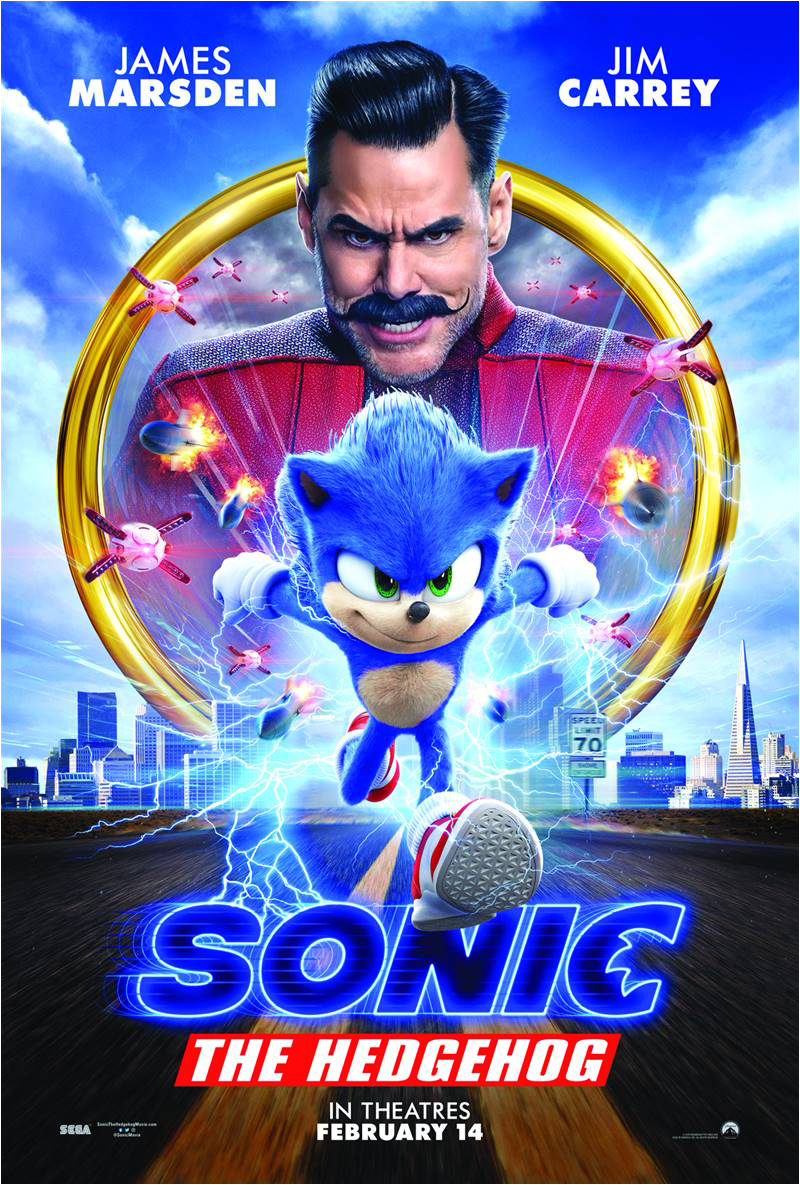
Amidst all the profitability of new renditions, something we’ve regularly touched upon in this space, films based on video games have their unique market. And yet these movies have almost always been lambasted by the critics over the past three decades or so. This, in turn, further reaffirms their billing as products designed exclusively for the video gamers, quite often making it a lucrative venture for the filmmakers.
Sonic the Hedgehog underlines the influence that the fans of a particular video game can have on any attempt at filmmaking. Last year, when the first look of Sonic was revealed ahead of the movie’s release, it outraged the buffs to a point that the producers had to redo the visual design.
For many of the fans, Sonic looked ‘too human’ and depicted an ‘unacceptable’ departure from the original video game character. A year later, after the outrage having been addressed and the design having been ‘fixed’, Sonic the Hedgehog has been released worldwide.
For all intents and purposes, Sonic the Hedgehog has been in the works for almost three decades. The idea for a film based on the Sega video game franchise was conceived in early 1990s, only taking some shape at the start of the previous decade, with the film finally being shot and put together over the past couple of years.
As underlined above, given the say that the video games’ fans have in the actual making – or redoing – of the film, that the final movie has been wholeheartedly embraced by those particular buffs was almost a given. That has resulted in Sonic the Hedgehog doing exceedingly well at the Box Office. However, if you aren’t among those who actually played the Sega game, and hence don’t quite have the same affiliation with it, you might not quite enjoy the film to the same extent.
That the movies based on video games don’t quite sit well with film critics is because those reviewing them almost never are those who have played the games. This has meant that even blockbusters like Lara Croft: Tomb Raider haven’t been given a thumbs-up by the critics.
Last year’s Detective Pikachu was one of the few that garnered largely positive reviews from the critics. Prior to that even films that have done significant business over the past three decades, the likes of Street Fighter, Resident Evil, Doom, Prince of Persia or Need for Speed – all based on some of the most popular video games of all time – were largely lambasted. The first Mortal Kombat movie, released in 1995, managed to get some respite from the critics at a time when films based on video games was still a novel idea.

Even so, where Sonic the Hedgehog has largely been accepted by the fans, and appreciated by many critics, others have expressed dissatisfaction over many facets of the film. Some purists have criticized the fact that too much of the film is played out on earth, when they would actually have preferred the setting to be the video game world wherein Sonic is based.
What also stands out in the film is the lack of stimulating writing. As is quite often the case – something we discussed last week as well – whenever the visual depiction is the centre of any film’s productions, the writing quality manages to take a hit, almost as if the two cannot coexist.
Although the intent clearly is to ensure that nothing that would put off the fans of the video game is written or included, but decent writing entails staying true to the original while at the same time building something better. What is also evident is that filmmakers are yet to crack the code of transforming video games into films that would attract an audience that hasn’t played those games.
Sonic the Hedgehog underlines the influence that the fans of a particular video game can have on any attempt at filmmaking. Last year, when the first look of Sonic was revealed ahead of the movie’s release, it outraged the buffs to a point that the producers had to redo the visual design.
For many of the fans, Sonic looked ‘too human’ and depicted an ‘unacceptable’ departure from the original video game character. A year later, after the outrage having been addressed and the design having been ‘fixed’, Sonic the Hedgehog has been released worldwide.
For all intents and purposes, Sonic the Hedgehog has been in the works for almost three decades. The idea for a film based on the Sega video game franchise was conceived in early 1990s, only taking some shape at the start of the previous decade, with the film finally being shot and put together over the past couple of years.
As underlined above, given the say that the video games’ fans have in the actual making – or redoing – of the film, that the final movie has been wholeheartedly embraced by those particular buffs was almost a given. That has resulted in Sonic the Hedgehog doing exceedingly well at the Box Office. However, if you aren’t among those who actually played the Sega game, and hence don’t quite have the same affiliation with it, you might not quite enjoy the film to the same extent.
That the movies based on video games don’t quite sit well with film critics is because those reviewing them almost never are those who have played the games. This has meant that even blockbusters like Lara Croft: Tomb Raider haven’t been given a thumbs-up by the critics.
Last year’s Detective Pikachu was one of the few that garnered largely positive reviews from the critics. Prior to that even films that have done significant business over the past three decades, the likes of Street Fighter, Resident Evil, Doom, Prince of Persia or Need for Speed – all based on some of the most popular video games of all time – were largely lambasted. The first Mortal Kombat movie, released in 1995, managed to get some respite from the critics at a time when films based on video games was still a novel idea.

Sonic the Hedgehog underlines the influence that the fans of a particular video game can have on any attempt at filmmaking
Even so, where Sonic the Hedgehog has largely been accepted by the fans, and appreciated by many critics, others have expressed dissatisfaction over many facets of the film. Some purists have criticized the fact that too much of the film is played out on earth, when they would actually have preferred the setting to be the video game world wherein Sonic is based.
What also stands out in the film is the lack of stimulating writing. As is quite often the case – something we discussed last week as well – whenever the visual depiction is the centre of any film’s productions, the writing quality manages to take a hit, almost as if the two cannot coexist.
Although the intent clearly is to ensure that nothing that would put off the fans of the video game is written or included, but decent writing entails staying true to the original while at the same time building something better. What is also evident is that filmmakers are yet to crack the code of transforming video games into films that would attract an audience that hasn’t played those games.

